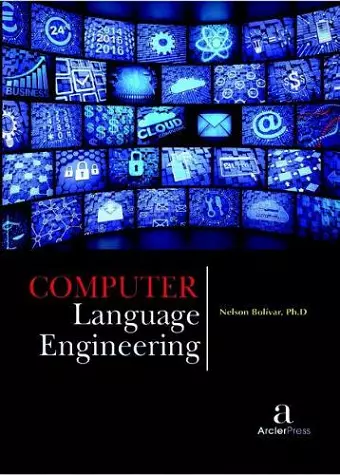Computer Language Engineering
Format:Hardback
Publisher:Arcler Education Inc
Published:30th Nov '16
Should be back in stock very soon

Computer programming language is any of various languages for expressing a set of detailed instructions for a digital computer. Such instructions can be executed directly when they are in the computer manufacturer-specific numerical form known as machine language.
Computer Language Engineering addresses the implementation of high-level programming languages into specifics fields, from science to civil engineering. Students, scientist and engineers will find this book to be a good comprehensive resource for learning about the construction and application of some relevant languages, focusing on specific applications that are also novel research material in the area. The aim of first chapter is to provide basic principles of software engineering. Second chapter presents a lightweight behavior based language for requirements modeling. The goal of third chapter is to present an elaborated emulator of a 2-D massively parallel re-configurable mesh computer of size n x n processing elements (PE). Fourth chapter deals with the semantic analysis of queries written in natural language and dedicated to the object oriented data bases. Fifth chapter focuses on integrating auto computer-aided design (ACAD) with geographic information system (GIS) for civil engineering applications. In sixth chapter, C-language programming for development of conventional water treatment plants decision support system has been studied. The purpose of seventh chapter is to deal with probabilistic graphical query language for gene expression time courses and eighth chapter discusses about the application of binary alignment/map query language (BAMQL) for extracting reads from binary alignment/map (BAM) files. Ninth chapter proposes an open, high-level, and portable programming language called “Phonepl”, which is independent from vendor-specific proprietary hardware and software but can be translated into a network processor (NP) program with high performance especially in the memory use. Tenth chapter deals with common programming languages used in bioinformatics and eleventh chapter introduces Ruby as a highly suitable scripting language for biologists to learn and use. Twelfth chapter presents a domain specific language, the S3DB query language (S3QL), to operate on its underlying core model and facilitate management of linked data. Thirteenth chapter provides a generic concept that allows R users to extend their statistical and bioinformatical procedures, which are relying on commands in the R prompt, with standard graphical user interfaces. Fourteenth chapter describe how to re-architect the Java type checking process...
ISBN: 9781680944457
Dimensions: unknown
Weight: unknown
205 pages